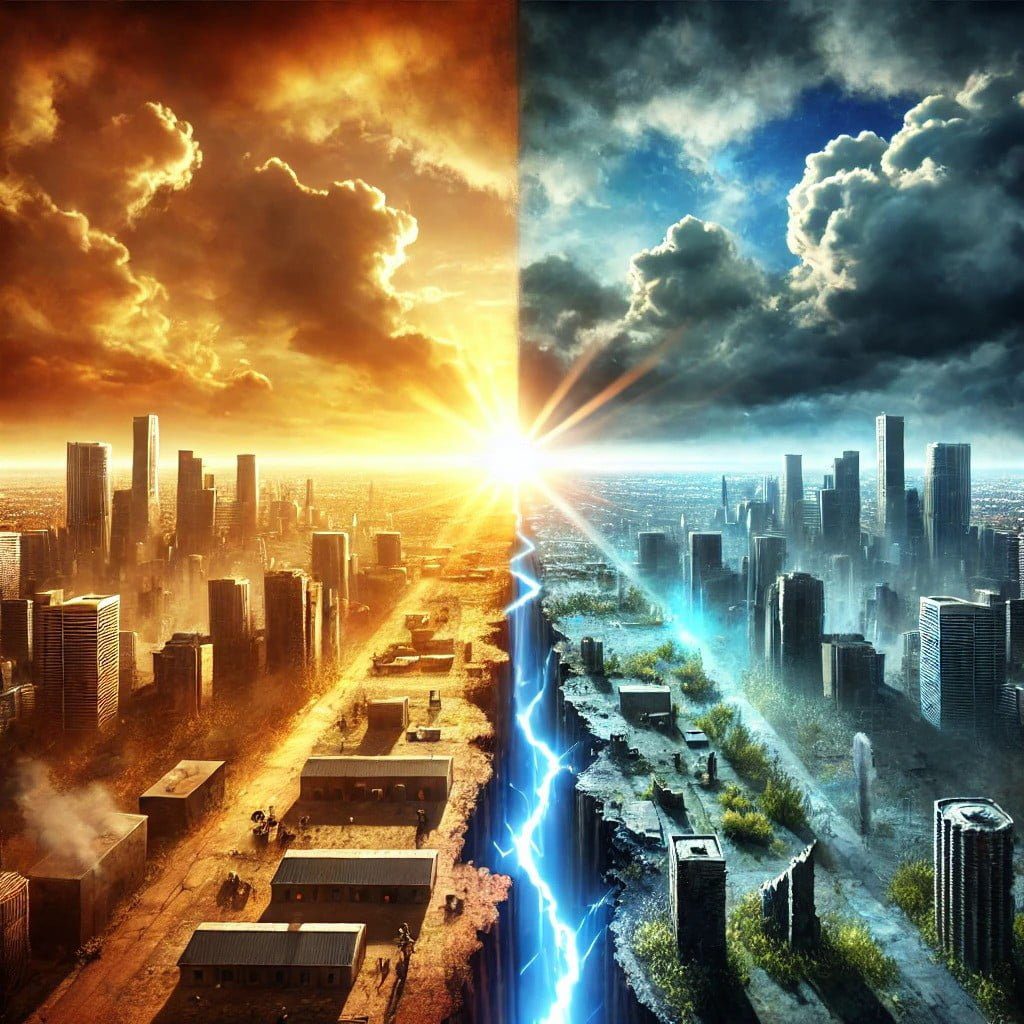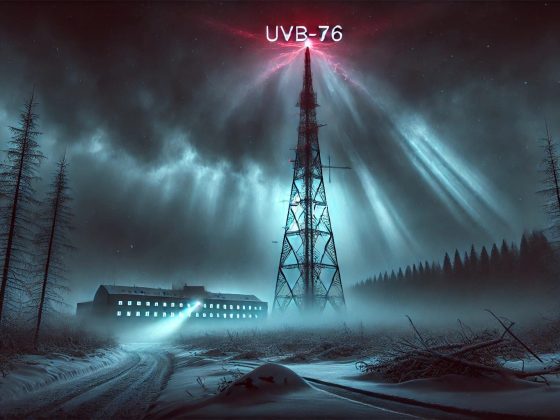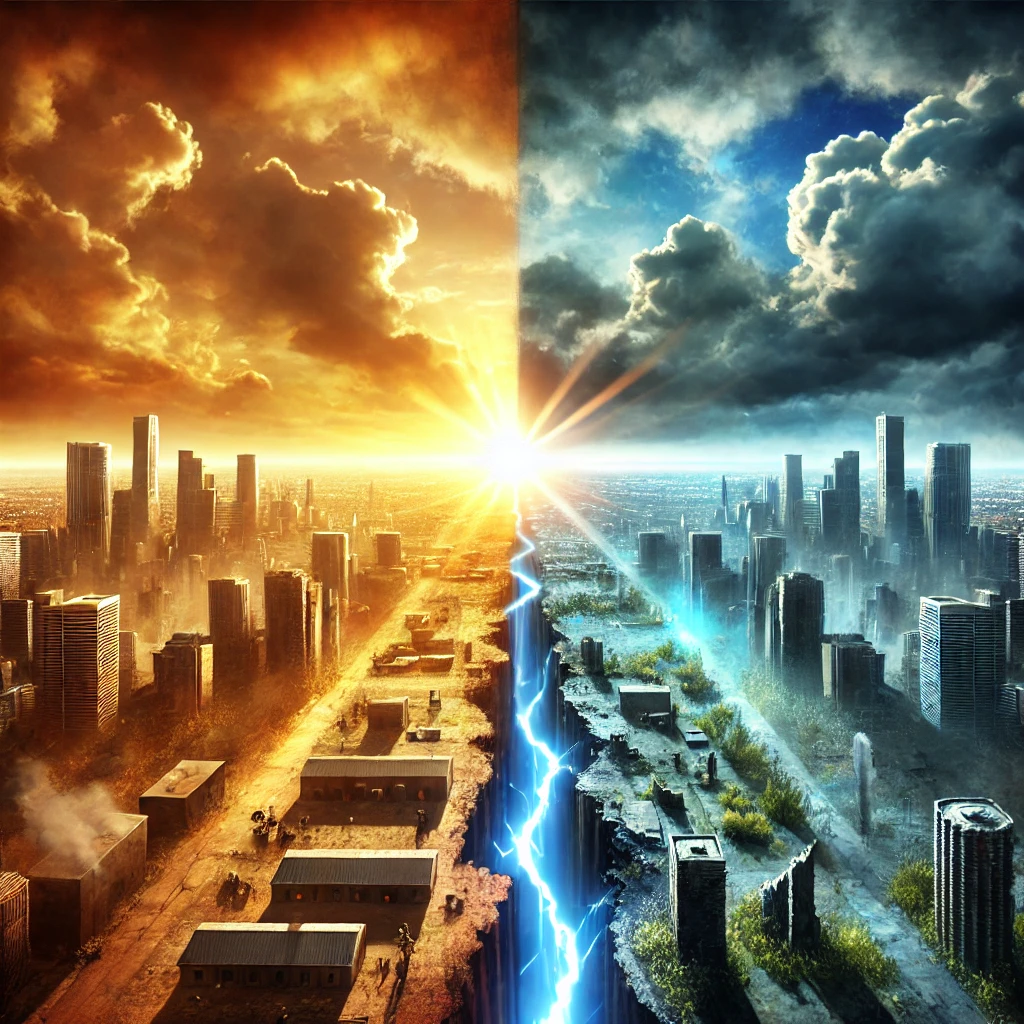
The United States, once a beacon of unity and democratic ideals, finds itself deeply divided. The political landscape, once defined by compromise and collaboration, is now dominated by fierce partisanship and a growing sense of distrust. This division, known as the Partisan Divide in America, extends beyond the political sphere, permeating social interactions, shaping public discourse, and threatening the very fabric of American society. This article delves into the complex forces driving this divide, exploring its origins, its impact, and the potential paths towards healing.
America Divided: A Nation at Odds
The United States, a nation built on the principles of freedom and equality, has always been a tapestry of diverse perspectives. But in recent years, this diversity has morphed into a profound division, with seemingly irreconcilable differences separating Americans on issues ranging from healthcare and education to immigration and climate change. This division is not merely a matter of differing opinions; it has become a cultural chasm, fueled by a sense of alienation and a loss of shared values. Groupthink dominates the two parties.
One of the most tangible manifestations of the partisan divide is the increasing polarization of the political landscape. The two major political parties, once able to find common ground on important issues, now seem locked in a perpetual battle for supremacy. This polarization has made it increasingly difficult to achieve meaningful progress on critical challenges facing the nation.
The division is also evident in the way Americans view each other. Surveys show a growing distrust between members of opposing political parties, with each side increasingly viewing the other as a threat to their way of life. This distrust has eroded social cohesion and made it harder to engage in constructive dialogue.
The consequences of this division are far-reaching, impacting everything from the quality of public discourse to the effectiveness of government. The erosion of trust in institutions, from the media to government, further exacerbates the divide. This lack of trust makes it difficult to find common ground and address the nation’s challenges.
The division also threatens the very fabric of American society. It fuels anger and resentment, leading to a breakdown of civil discourse and an increase in hate crimes and violence. This breakdown in social cohesion is a dangerous trend with far-reaching consequences for the future of the nation.
The American experiment, once a model for the world, is facing a critical test. The question is whether the nation can bridge the partisan divide and find a way forward, or whether the divisions will continue to deepen, threatening the very foundation of American democracy.
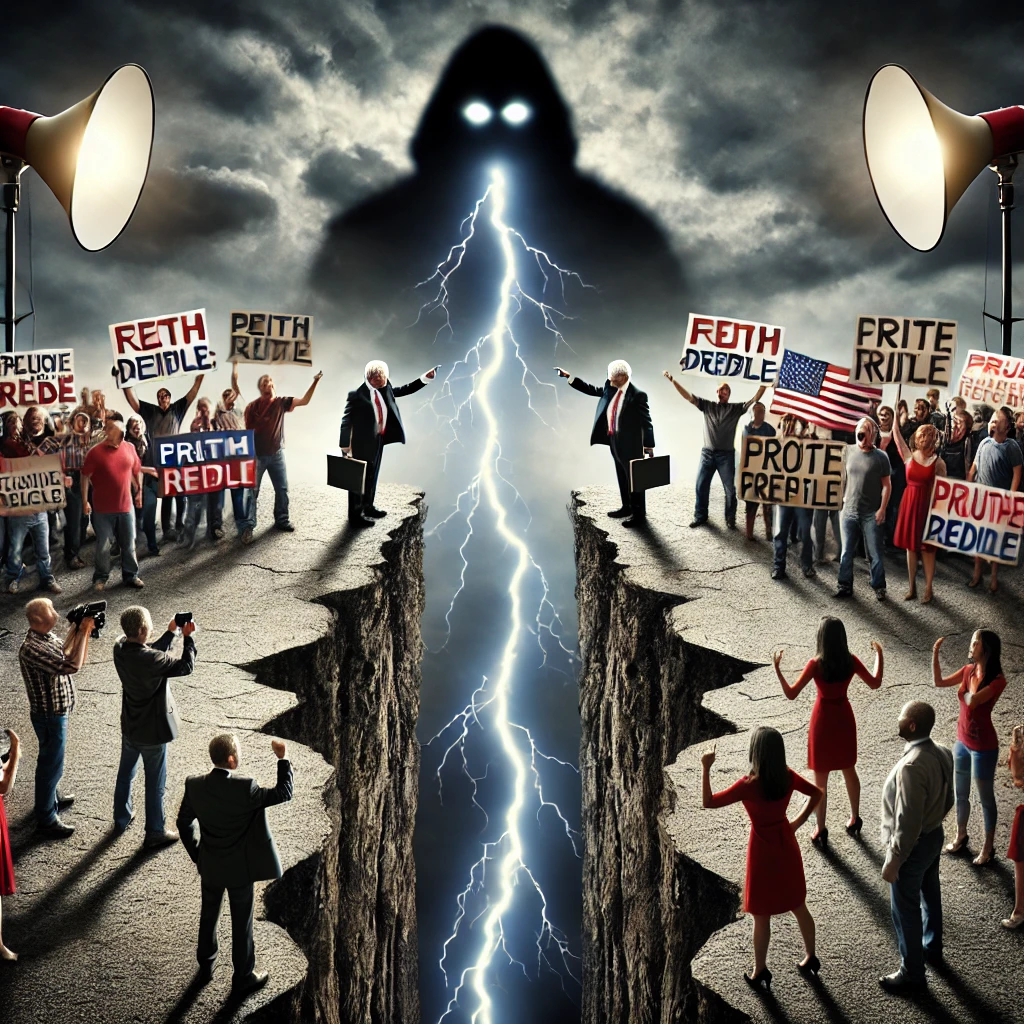
The Rise of Partisanship: A Deepening Divide
The rise of partisanship, a key driver of the current division, is a complex phenomenon with roots in a variety of factors. One major contributing factor is the increasing influence of money in politics. The rise of political action committees (PACs) and super-PACs has allowed wealthy individuals and corporations to exert significant influence over elections and policymaking.
This influx of money has created a system where politicians are incentivized to cater to the interests of their biggest donors, often at the expense of the broader public interest. This has led to a hardening of party lines, with politicians becoming increasingly beholden to their respective party platforms and less willing to compromise.
Another factor contributing to the rise of partisanship is the increasing use of divisive rhetoric by political leaders. Politicians often resort to inflammatory language and personal attacks to mobilize their base and demonize their opponents. This type of rhetoric has fostered a climate of fear and distrust, making it harder for Americans to engage in productive dialogue.
The media, particularly cable news and social media, has also played a role in fueling partisanship. The 24-hour news cycle, combined with the need to attract viewers and clicks, has created an environment where sensationalism and polarization often trump accuracy and objectivity.
The rise of partisan media outlets, catering to specific ideological groups, has further contributed to the echo chamber effect, where people are only exposed to information that reinforces their existing beliefs. This lack of exposure to diverse viewpoints has made it harder for Americans to understand and empathize with those who hold different perspectives.
The deepening partisan divide has had a profound impact on American democracy. It has made it harder to pass meaningful legislation, created gridlock in government, and eroded public trust in institutions. The question is whether this trend can be reversed or whether it will continue to deepen, threatening the stability of the nation.
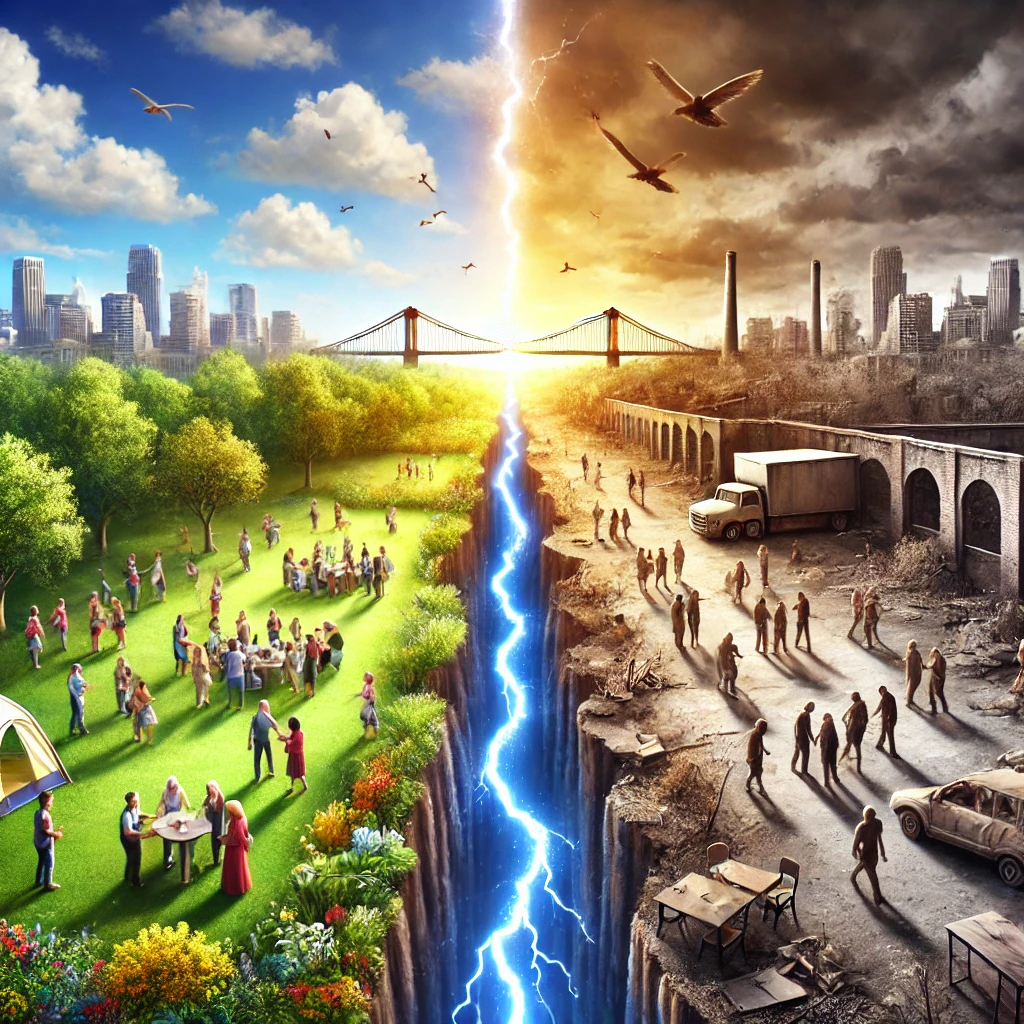
The Erosion of Trust: Politics in Crisis
The current political climate is characterized by a deep erosion of trust in institutions and in fellow citizens. This erosion of trust is a major factor contributing to the division in American society. It makes it difficult to find common ground, engage in productive dialogue, and address the nation’s challenges.
One of the key reasons for this erosion of trust is the increasing perception of corruption in government. Scandals and allegations of wrongdoing have tarnished the image of politicians and eroded public confidence in their ability to act in the best interests of the people. The perception that politicians are more interested in serving their own interests or those of their wealthy donors than in representing the needs of their constituents has further fueled this distrust.
The media has also played a role in eroding trust. The 24-hour news cycle and the rise of partisan media outlets have created an environment where negativity and sensationalism often trump accuracy and objectivity. This has led to a growing distrust in the media’s ability to provide reliable information and a sense that journalists are more interested in furthering their own agendas than in reporting the truth.
Social media has further exacerbated the erosion of trust by creating filter bubbles where people are only exposed to information that reinforces their existing beliefs. This lack of exposure to diverse viewpoints has led to a growing sense of polarization and a belief that those who hold different perspectives are untrustworthy or even dangerous.
The erosion of trust has had a profound impact on American democracy. It has made it harder for citizens to engage in constructive dialogue and participate in the political process. It has also made it more difficult to build consensus and address the nation’s challenges. Without trust, it is difficult to imagine how the nation can move forward and overcome the challenges it faces.
The Role of Social Media: Amplifying the Divide
Social media, a powerful tool for connecting people and sharing information, has also become a major factor in amplifying the division in American society. The algorithms that drive social media platforms often prioritize content that is emotionally charged and divisive, leading to the spread of misinformation and the creation of echo chambers where people are only exposed to information that reinforces their existing beliefs. Memetic amplification runs rampant. If you doubt this, read up on Cambridge Analytica, and remember that was well before AI and Deepfakes.
The ability to share information quickly and widely on social media has also made it easier for misinformation and conspiracy theories to spread. These false narratives can fuel anger and resentment, leading to a further breakdown in social cohesion.
The anonymity provided by social media can also embolden users to engage in behavior they would not otherwise engage in, such as making personal attacks or spreading hate speech. This online harassment and bullying can create a hostile environment for those who hold dissenting opinions or who are simply different.
The constant stream of information and the pressure to stay connected on social media can also lead to a sense of anxiety and stress. This can make it harder to engage in thoughtful dialogue and to consider different perspectives.
The impact of social media on the division in American society is undeniable. It has amplified existing divisions, created new ones, and made it harder to find common ground. While social media can be a powerful tool for connecting people and sharing information, it is important to be aware of its potential to exacerbate division and to use it responsibly.
Healing the Partisan Divide: Finding Common Ground
The division in American society is a complex and deeply rooted problem, but it is not insurmountable. Healing the divide will require a concerted effort from individuals, institutions, and the government. It will require a commitment to finding common ground, engaging in constructive dialogue, and building bridges across the divides.
One important step towards healing is to address the root causes of the division. This includes tackling economic inequality, reforming the political system to reduce the influence of money, and promoting media literacy to combat misinformation and disinformation.
Engaging in respectful dialogue is also crucial. People need to be willing to listen to and understand perspectives different from their own. This requires a willingness to step outside of echo chambers and to engage with those who hold different beliefs.
Building bridges across divides can be achieved through shared experiences and common goals. This includes promoting community engagement, supporting organizations that foster cross-cultural understanding, and working together on common challenges such as climate change and healthcare.
The government can also play a role in healing the divide by promoting policies that address the needs of all Americans, not just the wealthy and powerful. This includes investing in education, infrastructure, and healthcare, and ensuring that all citizens have access to opportunity.
Healing the divide will require a collective effort and a commitment to building a more just and equitable society. It will require a willingness to listen to and understand others, to find common ground, and to heal the partisan divide and build a better future for all Americans.
The Future of Democracy: A Crossroads for America
The division in American society poses a serious threat to the future of democracy. If the nation cannot find a way to bridge the divide and restore trust in institutions, it risks becoming a fractured and dysfunctional society, unable to address the challenges it faces.
The erosion of trust in government and in fellow citizens has created a sense of cynicism and apathy, leading to lower voter turnout and a decline in civic engagement. This further weakens democracy and makes it harder to address the needs of the people.
The rise of populism and extremism, fueled by anger and resentment, also poses a threat to democracy. These movements often exploit existing divisions to gain power, undermining democratic institutions and norms.
The future of democracy in America is at a crossroads. A deep chasm has emerged between its citizens, fueled by political polarization, social media, and a media landscape that often prioritizes sensationalism over truth. This divide threatens to erode the very fabric of American democracy, leaving us questioning the future of our nation.
“The smart way to keep people passive and obedient is to strictly limit the spectrum of acceptable opinion, but allow very lively debate within that spectrum – even encourage the more critical and dissident views.” –Noam Chomsky
